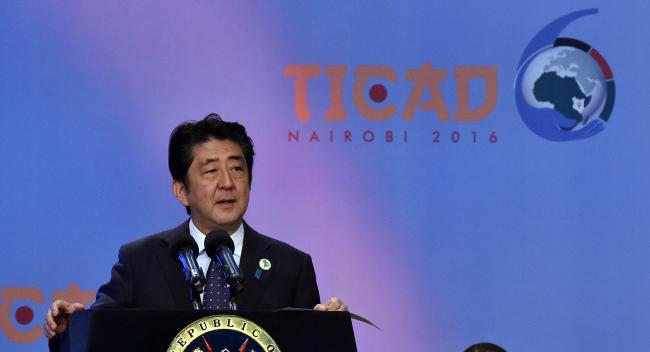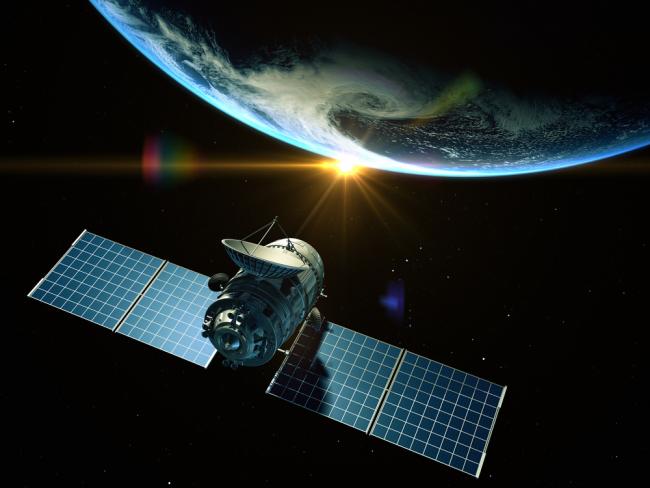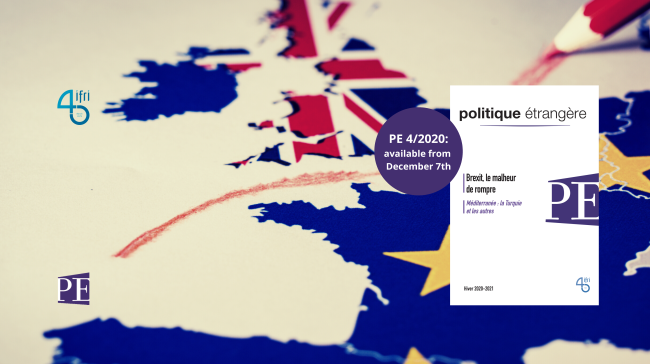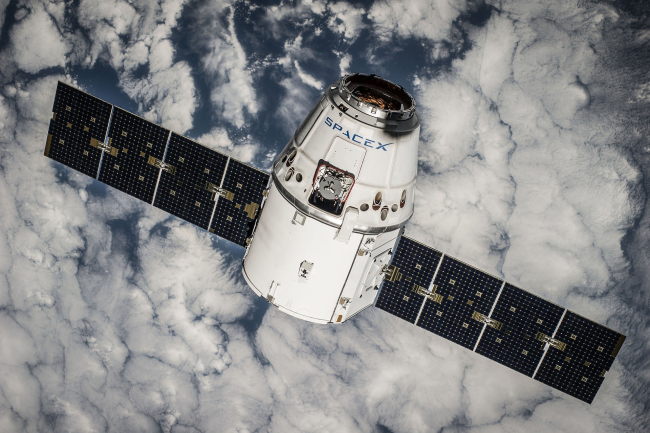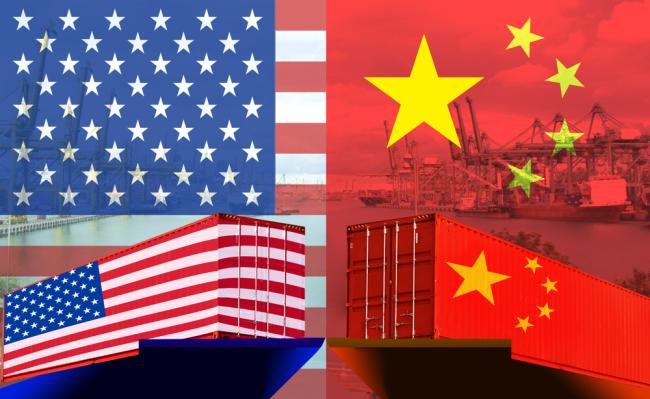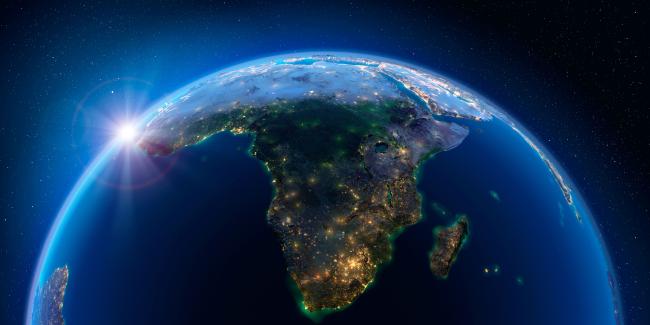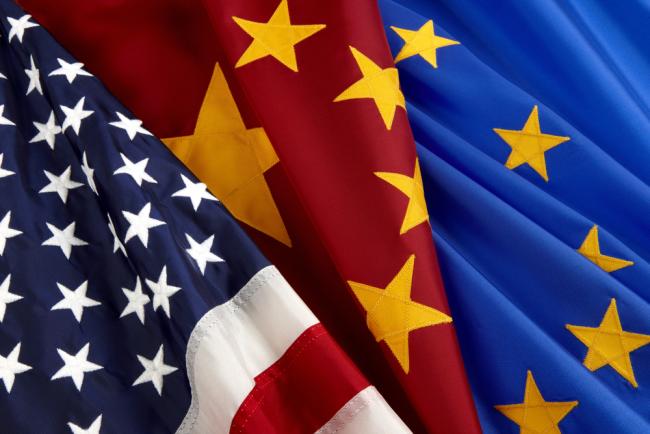Economy
The economy is an essential attribute of power and a major component of international relations. While geopolitical tensions are on the rise, economic interdependence remains strong.
Related Subjects

Japan’s Economic Diplomacy in Africa: Between Strategic Priorities and Local Realities
During his term in office (2012-2020), Prime Minister Shinzo Abe sought to demonstrate Japan's high level of interest in Africa, including by pledging a total of $ 60 billion in financial support at the 2013 and 2016 Tokyo International Conference on African Development (TICAD) summits and announcing his vision for a “Free and Open Indo-Pacific” (FOIP) at the TICAD-VI in Nairobi.
Improving Economic Security: Proposals from Japan
The COVID-19 crisis has made clear the importance of resilient supply chains and effective economic security.
Space as a Key Element of Europe's Digital Sovereignty
At the end of year 2020, the European space sector finds itself at a crossroads between challenges and opportunities. While the 2019 European Space Agency (ESA) Ministerial Conference marked a progression in terms of budgets, a sign of renewed space ambitions, the technological and financial acceleration from the United States represents a disruptive scenario that poses threats to the continuity of European space capabilities.
UK/EU Relations after Brexit: Why Breaking Up Is Hard to Do
Despite the posturing, both the United Kingdom and the European Union are trying to reach a deal. However, London’s cliffedge strategy and Brussels’ control of the agenda and progress of the negotiations could result in an “any deal is better than no deal”.
Brexit: The Trouble of Breaking Up
On the brink of Brexit, what form will it take? British and European negotiators might prefer a bad deal to no deal, but would this avoid the significant disruption in trade with the European Union that no new trade deal could make up for?
Revolutionary by Design: The US National Security State and Commercialization in the US Space Sector
The US space sector, comprised of its government organizations and its commercial industry, is leading the revolution in space, often called "new space".
The US-China Trade War: What Is the Outcome after the Trump Presidency?
One of Donald Trump’s campaign promises in 2016 was to end China’s “cheating” on trade and to reduce America's trade deficit by imposing significant tariffs on U.S. imports of Chinese products. This study draws up a first assessment of his policy - and of the "trade war" which stemmed from it.
The Potential of Digital Technologies for Centralized Electricity Systems in Sub-Saharan Africa
Affordable and reliable electricity access is a prerequisite for the economic development of sub-Saharan Africa.
The Karlsruhe Court Judgment: A Thunderclap from a Clear Sky?
In its judgment of 5 May 2020, the German Federal Constitutional Court in Karlsruhe questioned the conditions under which the European Central Bank (ECB) had adopted a Public Sector Purchase Programme (PSPP), thus contradicting the position taken by the Court of Justice of the European Union in the same case.
Technology Strategies in China and the United States, and the Challenges for European Companies
As international relations are increasingly reorganized around the US-China rivalry, the tensions between these two great powers are shaping a growing number of sectors, and the exchange of sensitive technologies in particular. This is a critical issue for European companies today.
The Evolving Role of Southeast Asia in Global FDI Flows
This paper traces the evolution of FDI in ASEAN and discusses future prospects for the region as a host - and increasingly home - to FDI.
No Longer the 'Reactive State': Japan's Pro-Active Free Trade Posture
In late 2010, the Kan government proclaimed a very ambitious trade agenda, leaving no doubt as to its commitment to free trade. The Basic Policy on Comprehensive Economic Partnerships aimed to promote "high-level economic partnerships with major trading powers" and to "open up the country", including collecting information on the Trans-Pacific Partnership (TPP) and consulting with the parties to it.
Decoupling the Oil and Gas Prices: Natural Gas Pricing in the Post-Financial Crisis Market
This paper looks into natural gas pricing in the post-financial crisis market and, in particular, examines the question whether the oil-linked gas pricing system has outlived its utility as global gas markets mature and converge more rapidly than expected and as large new resources of unconventional gas shift the gas terms-of-trade.
The G20 and the Challenge of International Financial Re-regulation
The crisis, it is now widely accepted, means that markets failed. Meeting for the first time in Washington in November 2008, the G20 embarked in a ride of re-regulation. Months of negotiations later, it dramatically appears different to agree on principles and broad objectives, and to write and enforce rules and commitments.
Will We Drive Electric on Asian Batteries?
The development of the electric car market, supported by public funding, needs to be monitored closely. Currently, except for Renault benefiting from its electric partnership with Nissan, batteries for electric vehicles will most likely be outsourced. A lot of joint ventures are being signed with Asian battery companies and automotive suppliers. As a consequence, some argue that there is no rational to develop further and fund the European battery industry: batteries are already made more cheaply elsewhere.
European Defence Economy Afflicted by the Crisis
The European defence sector generates €86 billion annually - and that is only taking into account the 2009 turnover of the European defence industry for the three areas - aeronautics, land forces and naval forces.
Electric Cars: the Orient and the Occident
China is looking ahead and thinking electric. The Chinese government recently announced the release of $15 billion in a “Manhattan-style” venture to support electric vehicle (EV) research, standardization and development as part of its five-year plan and to meet its seemingly unattainable objective of introducing 500 000 “clean” vehicles per year by 2011.
Rare Earths and Clean Energy: Analyzing China's Upper Hand
An ominous resource crunch in the so-called “rare earth elements” is now threatening the development of a number of key industries from energy to defense to consumer electronics. As key components in the latest generation of technologies, including specialized magnets for windmills and hybrid cars, lasers for range finders and “smart” munitions, and phosphors for LCD screens, demand for these rare metals is expected to grow rapidly in the years to come.
An Analysis of North Korea's Principal Trade Relations
The Direction of Trade Statistics by IMF is the most representative statistical data for bilateral trade with North Korea. However, IMF statistics underestimate North Korea's international trade since they do not classify inter-Korean trade as international trade. Therefore, this study restructures statistics on North Korea by combining the IMF and inter-Korean trade data, and it analyzes the structure of North Korea's international trade. In addition, it conducts a unique analysis of trade structures, since other studies have not analyzed production processes in North Korean trade.
This analysis identifies six main characteristics of North Korea's trade:
Support independent French research
Ifri, a foundation recognized as being of public utility, relies largely on private donors – companies and individuals – to guarantee its sustainability and intellectual independence. Through their funding, donors help maintain the Institute's position among the world's leading think tanks. By benefiting from an internationally recognized network and expertise, donors refine their understanding of geopolitical risk and its consequences on global politics and the economy. In 2025, Ifri supports more than 80 French and foreign companies and organizations.








